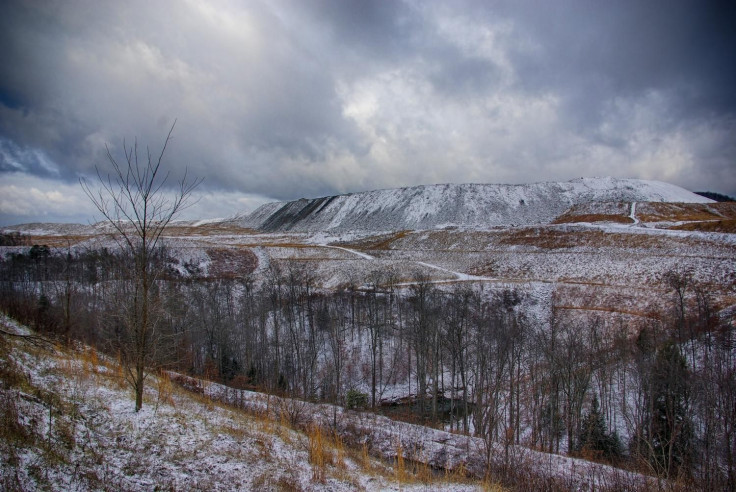Coal Effects On Environment: Mountaintop Mining Pollutes Water, Changes Environment Of Appalachia

Coal mining at the top of a mountain makes nearby waterways unnaturally salty for a large portion of the year, according to new research into the practice in the U.S. and its effect on the environment of Appalachia.
The region encompasses parts of 13 states but a study in the journal Environmental Science & Technology specifically focused on its coal region, in Kentucky, Tennessee, Virginia and West Virginia. In these places, workers blast away pieces of rock to get at coal buried beneath, then deposit the crushed rock remains into adjacent valleys where there could be water sources. Researchers found that a lot of those streams and rivers in this Appalachian area are saltier for about 80 percent of the year as a result of this coal mining. And that salt flows downstream.
Read: Even This Remote, Uninhabited Island Is Covered in Plastic Litter
“Humans have manipulated their environment on a detectable scale for thousands of years since at least the onset of agriculture,” the study says. “Today, the anthropogenic impacts on the landscape include, among others, large-scale deforestation, agriculture, under- and above-ground mining for coal and other natural resources, tar sand mining, damming of major rivers, urbanization and wars.”
These activities affect adjacent and nearby soils, plant life and other ecosystem elements.
“It is important to understand how physical and biological parameters are altered in order to evaluate the ramifications for encompassing ecosystems,” according to the study.
That includes analyzing waterways, which could be particularly important because of the importance of water to the rest of the environment — playing into human health and the diversity of marine animals — and because of a waterway’s capacity to branch out, for example carrying contaminants downstream to other areas.
The analysis for this study, conducted by researchers at the University of Wyoming and Duke University, involved looking at the water quality of four watershed areas that all lead into the Mud River basin in southern West Virginia and where the crushed rock blasted off mountaintops “can stretch for long distances and bury entire streambeds,” the University of Wyoming explained.
The practice of blasting off rock to access coal beneath is known as mountaintop removal mining, or mountaintop mining. After the crushed rock is moved from the mountaintops into the nearby valleys, over time the rocks and coal residue leach into both those streams and others in the surrounding area, putting salt and contaminants into the water.
The crushed rock also holds onto water, which wreaks havoc on the natural water flow cycle of the area: It decreases the amount of water runoff during the winter, and then the streams become a greater proportion of the water flowing during the remaining 80 percent of the year, the drier months.
Read: How Earth’s Oceans Have Changed Over Eons
“These significant alterations are likely to lead to saltier and more perennial streamflows throughout Appalachia, where at least 7 percent of the land has already been disturbed by mountaintop-removal mining,” researcher Fabian Nippgen said in the university statement. “It’s not just the mountains that are being changed.”
According to the researchers, their findings can translate to other places where coal is mined or where humans impact the landscape in similar ways.
“The consequences are both an altered hydrologic regime — which has implications for farming, urban water use and the environment — as well as degradation of streamwater quality,” researcher Matthew Ross said in the statement.
© Copyright IBTimes 2025. All rights reserved.





















